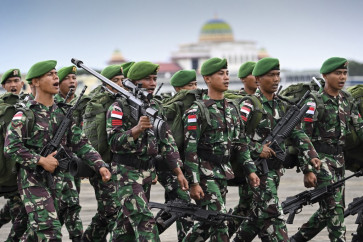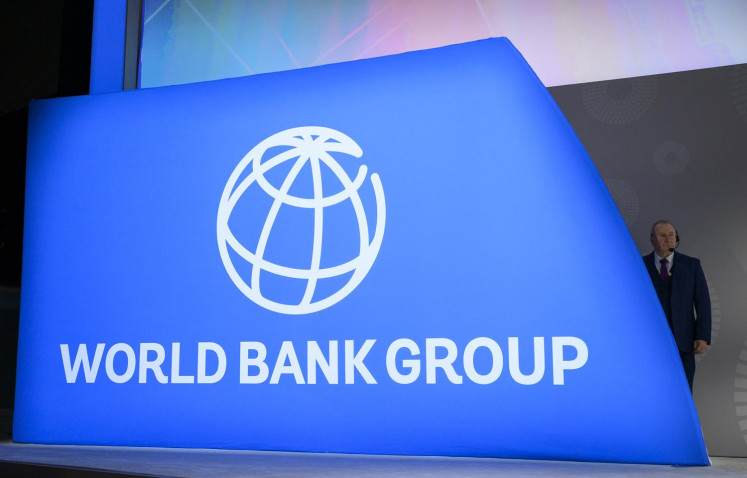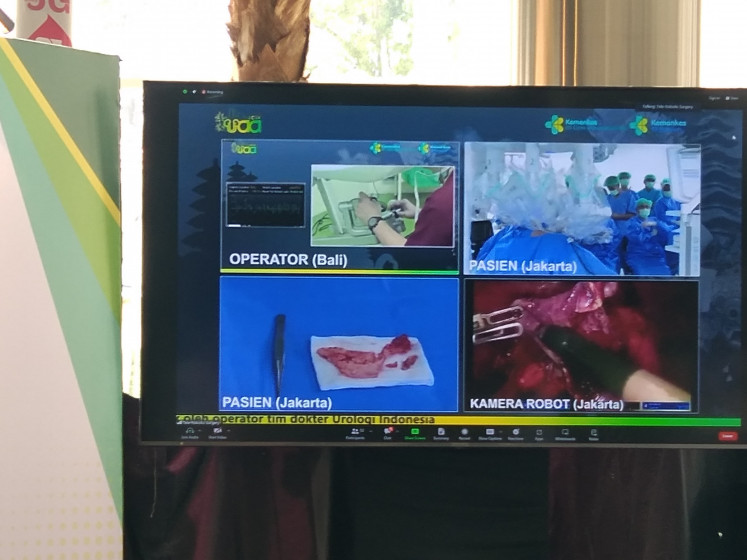Popular Reads
Top Results
Can't find what you're looking for?
View all search resultsPopular Reads
Top Results
Can't find what you're looking for?
View all search resultsMaritime power, between legacy and liability
Back in 1957, Indonesia, as a newly independent country, made a unilateral declaration to set a clear boundary of her frontiers
Change text size
Gift Premium Articles
to Anyone

B
ack in 1957, Indonesia, as a newly independent country, made a unilateral declaration to set a clear boundary of her frontiers. Today, the Djuanda Declaration has been recognized as one of the key concepts in the international law of the sea.
An observation of international law regimes of statehood reveals that Indonesia literally elaborated the second requirements of the 1933 Montevideo Convention on the rights and duties of states, i.e. a defined territory, and invented her very own archipelagic territory. The rest of the world followed suit; Article 46 to 54, part IV of the 1982 UN Convention on the Law of the Sea (UNCLOS) is the living proof of Indonesia's legacy to the world.
Fast-forward 57 years to 2014, when president-elect Joko 'Jokowi' Widodo decided to make Indonesia the maritime axis of the world. Ambitious, if not far-fetched, some argue, given a lack of considerable effort, modality and power. At least Indonesia should assume maritime power first before establishing itself as maritime axis of the world. Take Indonesia's master plan for economic expansion and development acceleration, or MP3EI, which does not prioritize maritime affairs. Or the not-so-powerful deterrence of military might, as reflected in Indonesia's defense budget.
Nevertheless, the world regards Indonesia as a maritime player, as reflected in her role in peaceful negotiations of maritime delimitation to manage security issues in the Strait of Malacca, to contributions in international fora such as the meeting of state parties to the UNCLOS, where an Indonesian was elected as the meeting's president for 2010-2011.
Yet almost all Indonesian maritime efforts in international fora are reactive, spur-of-the-moment diplomacy. Nothing wrong with that type of diplomacy, but often times it is stretched to a point of idiosyncrasy.
Actualizing Indonesia's shift from maritime player to maritime power demands concerted planning and effort from all relevant stakeholders. First, there should be a clear and concise concept of how maritime power is interpreted in feasible programs, in particular for diplomats and field military personnel.
For instance, whether Indonesia will continue with her concentric circle approach or expand her strategic alliance worldwide. Or whether Indonesia will carry out aggressive maritime diplomacy or maintain peace dividends as top priority issues. Ignoring the above basic questions may put Indonesia back into the maritime player position, a status quo of the current diplomacy regime.
And do not forget, being a maritime power comes with potential liabilities, i.e. international obligations to be met, failing which may result in substantial loss or damage.
But let us start with where we are now, that is a maritime player. Look no further than UNCLOS, the holy book of the international law of the sea. Indonesia ratified UNCLOS in 1985, but only recently is a bill of the sea (RUU Kelautan) being discussed in the House of Representatives; that is 29 years of legal uncertainty, if not a vacuum, due to Indonesia's inconsistent practices in making treaties into the law of the land.
This draft is intended to be the comprehensive law governing seas in Indonesia, replacing the current 14 scattered legislations on maritime-related issues. Indonesia may be liable if she fails to make UNCLOS the law of the land.
Another liability as a maritime player comes from Indonesia's international obligation derived from UNCLOS per se, among others, designation of archipelagic sea lane passages. Indonesia's legacy comes with a price that is the obligation to assign sea routes to replace lanes used for international navigation. And given Indonesia's strategic location, this regards both west-east and north-south directions.
At present, Indonesia has only managed to assign three north-south sea lanes, i.e. Karimata Strait ' Sunda Strait, Makassar Strait ' Lombok Strait and Maluku Strait ' Banda Sea.
Without the west-east or east-west designated sea lanes, foreign ships may traverse across Indonesia in the said directions through routes used for international navigation. Liability may arise when somewhere along the undesignated sea lanes accidents occur, particularly if such accidents are related to safety and security of navigation.
In projecting Indonesia as a global maritime power, basic modalities should comprise the works of all stakeholders.
Modalities that exercise, for example, sustainable economic growth, preferably from maritime-generated activities, second-to-none ports, coastal and ocean infrastructure and management, standout navy clout with a humanist orientation, and last, but not least, first-class diplomacy where cooperation is forged not only based on mutual benefits but also benefits to the world. These modalities will not only help a maritime power manage its liability but also formulate its legacy to the world.
Legacy and liability are like two sides of the same coin. The bigger the coin, the larger the legacy and the liability. Indonesia started with a small coin, that of the Djuanda Declaration as her legacy with a list of liabilities in return. Now, Indonesia is attempting to play a bigger coin, being a global maritime power. A status entitled to only a few but recognized by many, because only the few are able to manage their legacy and liability well. Countries such as the US and China may serve as interesting showcases of the transition from maritime players to maritime power.
All in all, the question of whether Indonesia is ready to assume the status of world maritime power remains valid; it is the answer that makes the critics skeptical.
____________
The writer works for the Foreign Ministry. The views expressed are his own.









